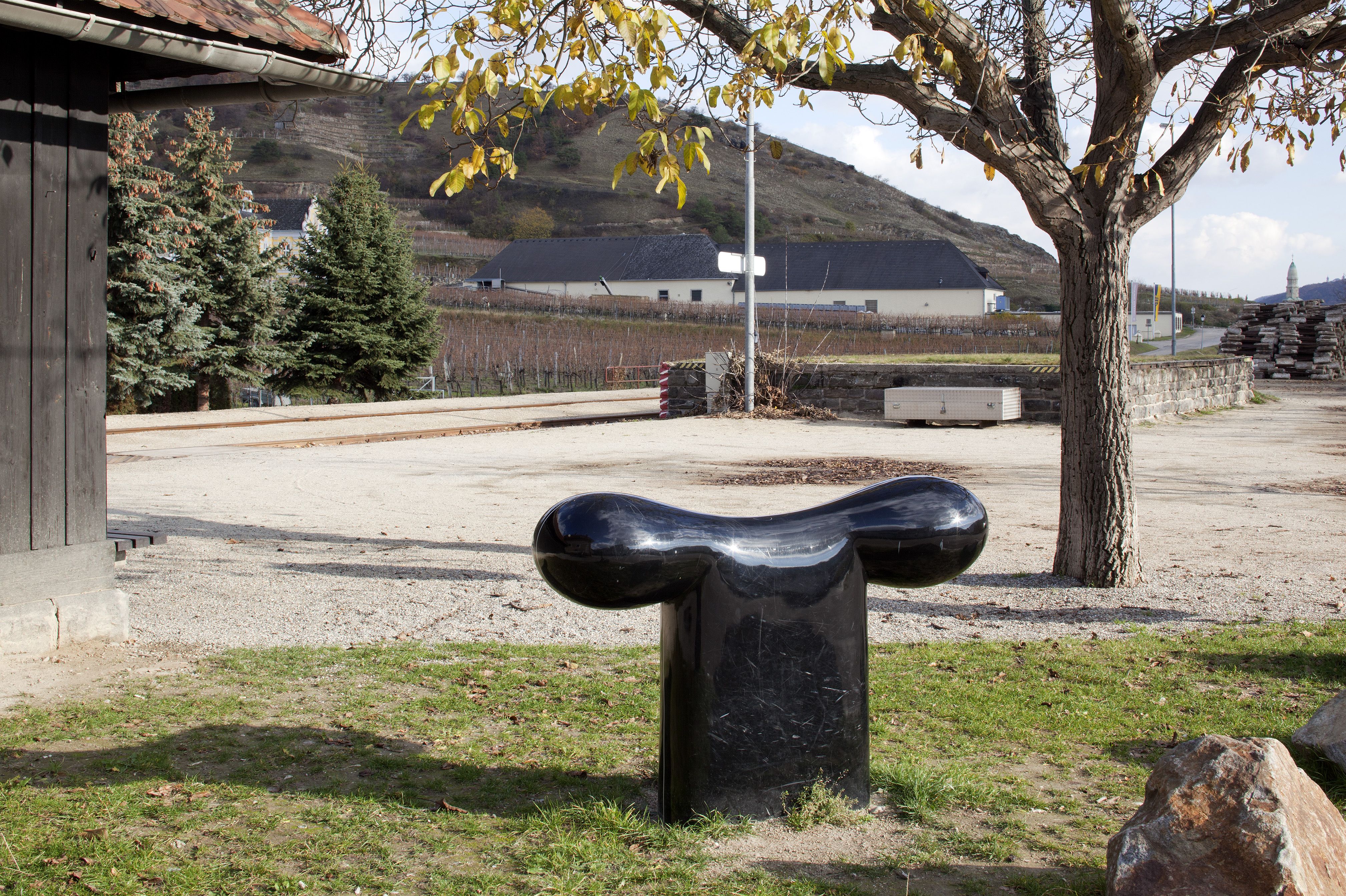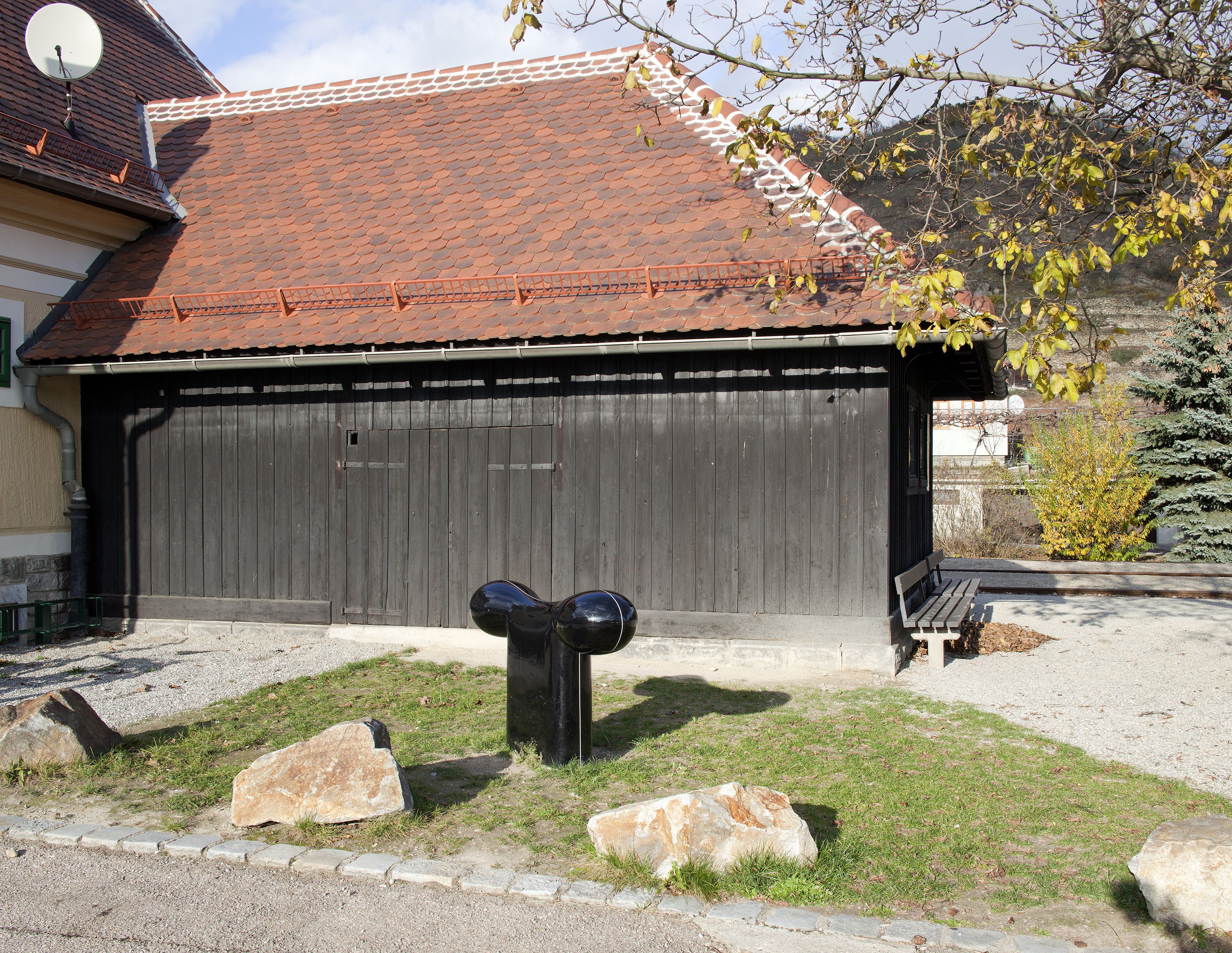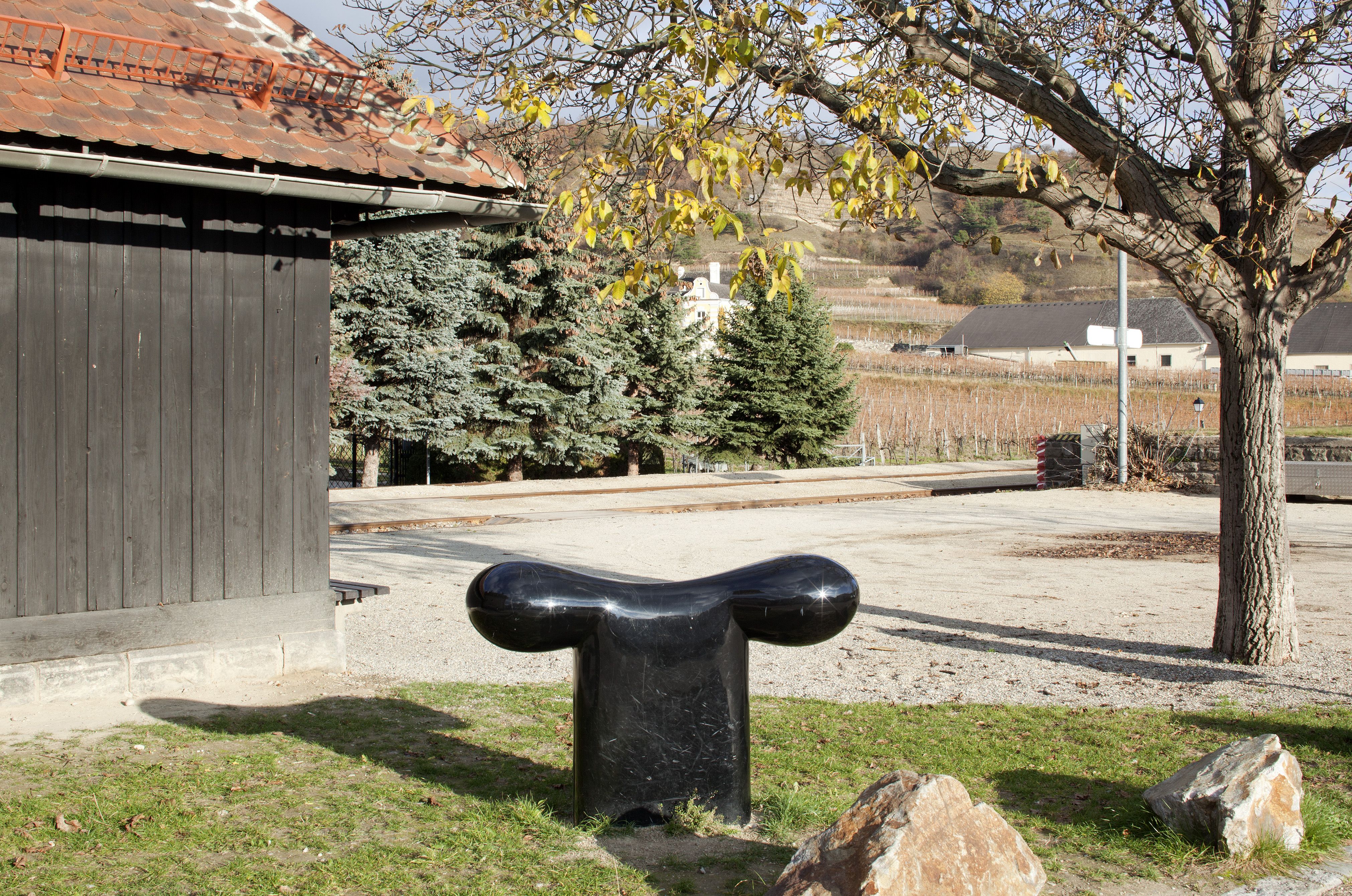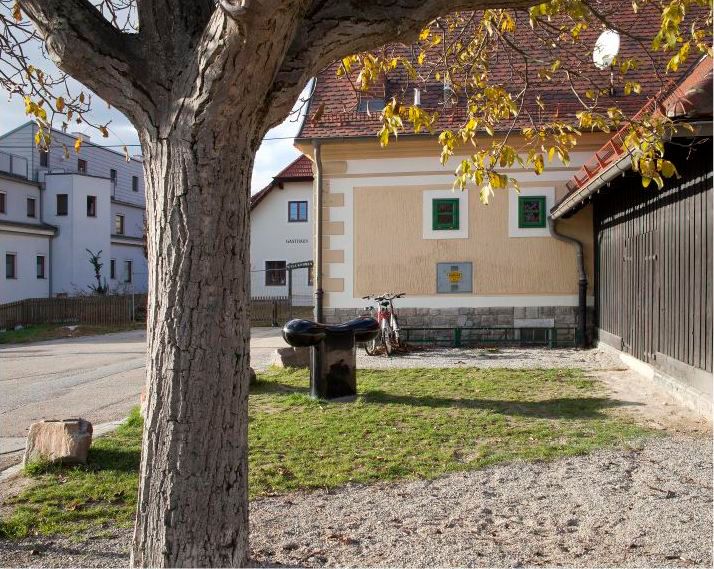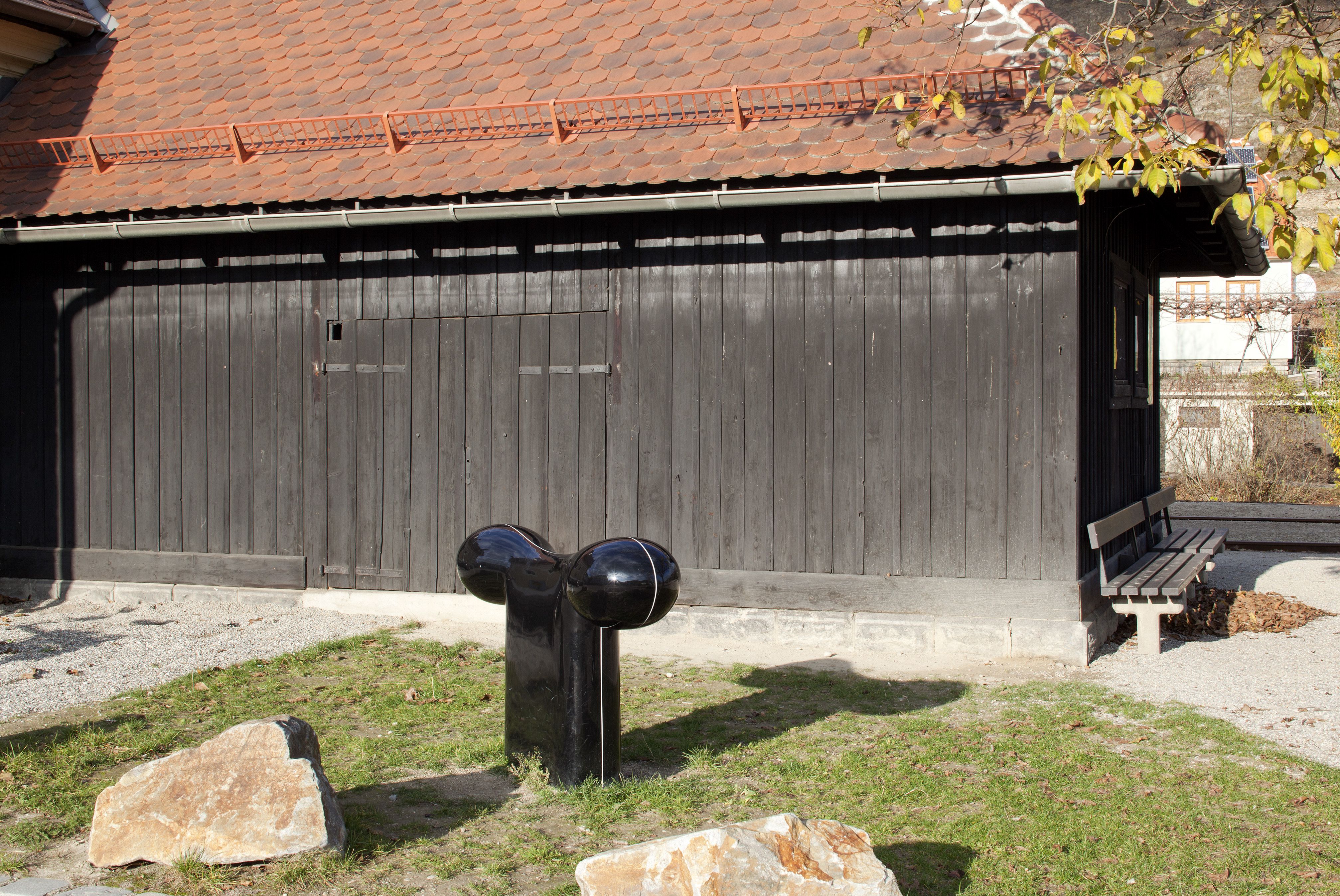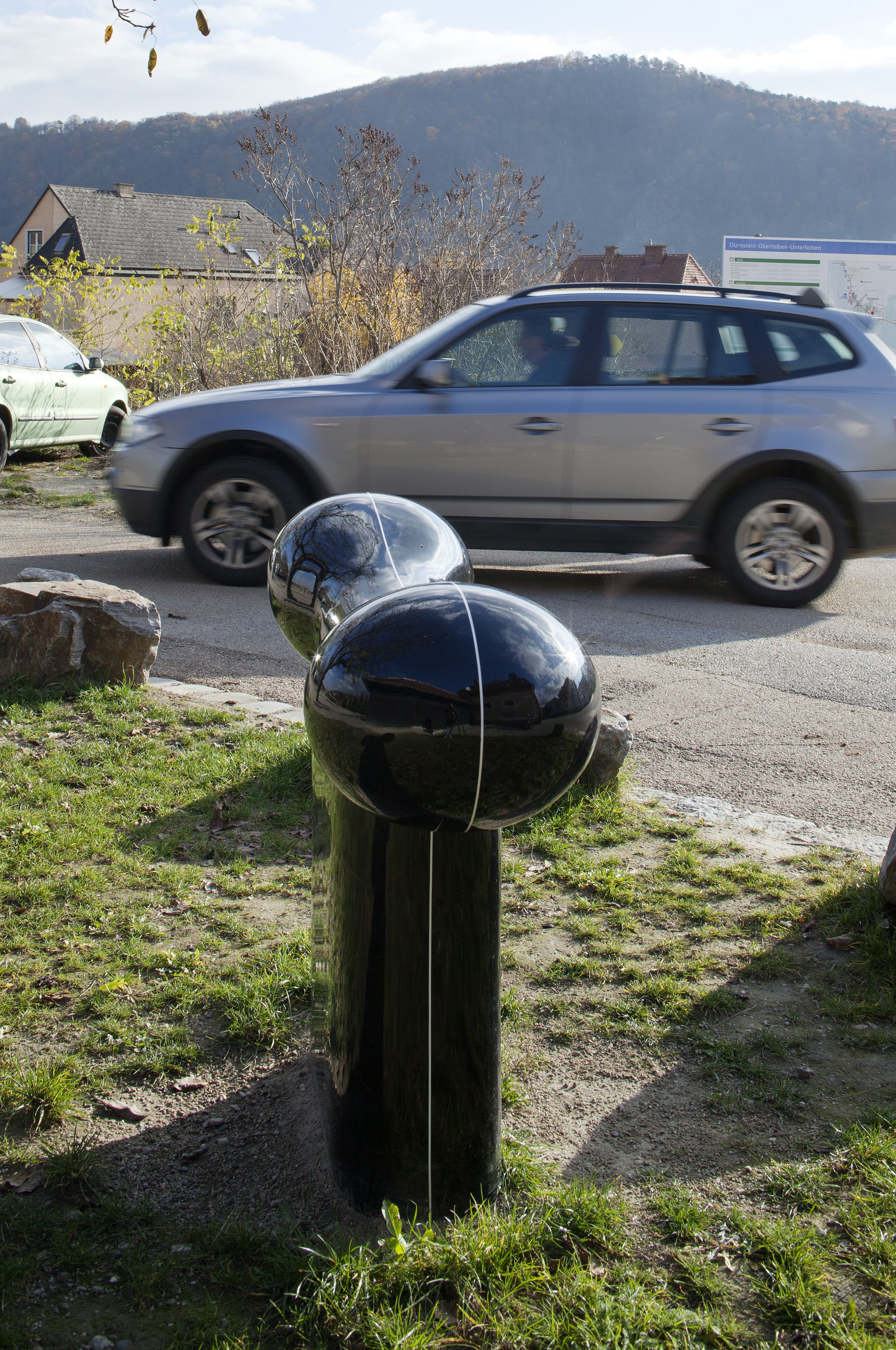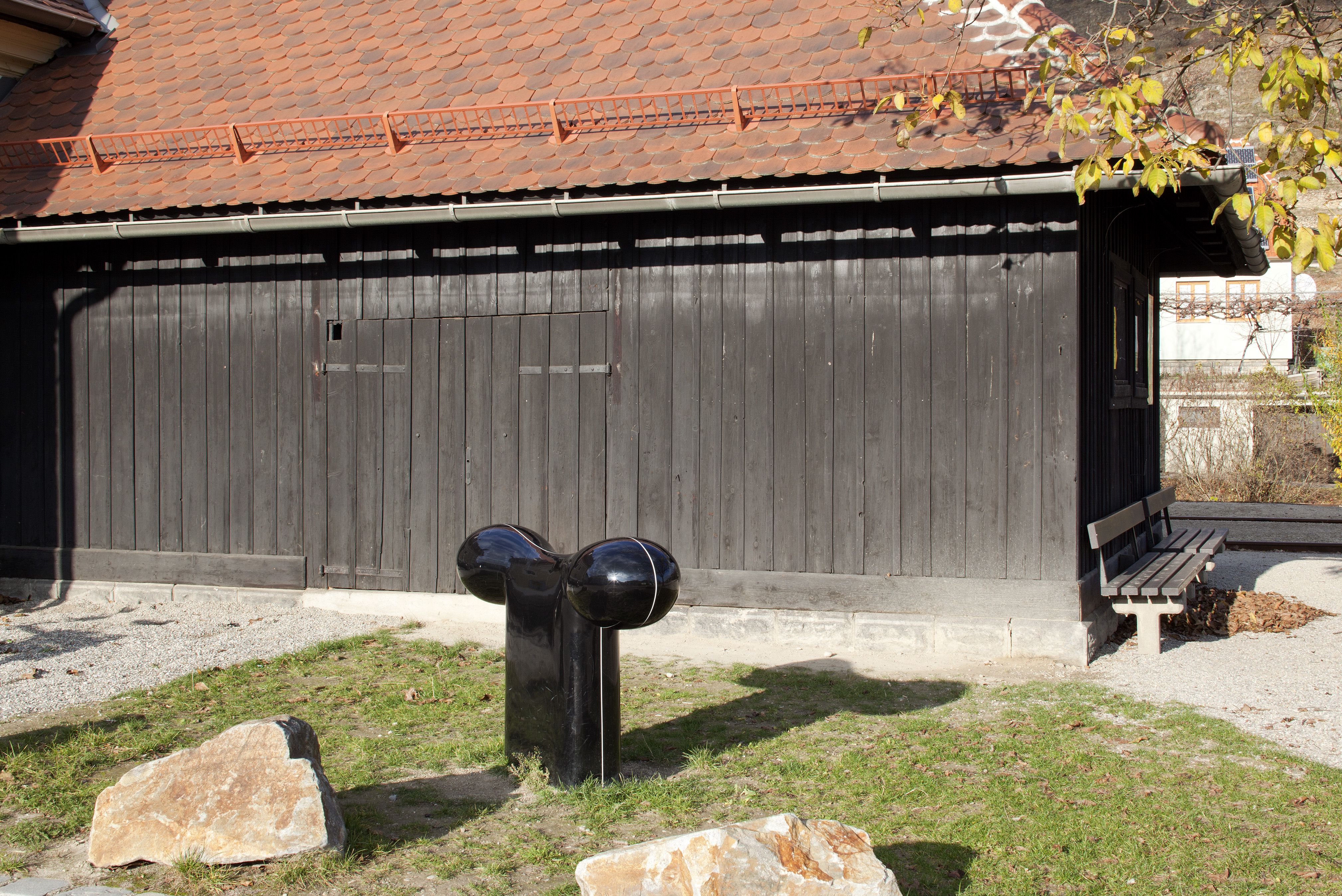Elizabet Ana
:
Sculpture in Dürnstein
Back
Information
The train station in Dürnstein, a community steeped in history, has a new landmark, a sculpture by the Croatian artist ANA Elizabet. The thigh-high object of black-coated metal initially looks enigmatic, like a being from other worlds whose polymorphous shape can neither be categorised as naturally occurring nor as a figurative object.
Project not on site. The train station in Dürnstein, a community steeped in history, has a new landmark, a sculpture by the Croatian artist ANA Elizabet. The thigh-high object of black-coated metal initially looks enigmatic, like a being from other worlds whose polymorphous shape can neither be categorised as naturally occurring nor as a figurative object. Nevertheless there is a suggestion of meaning to it, it almost has something creature-like to it that is familiar to us but which we cannot name. ANA Elizabet's sculptures live in and from this paradox. They are the product of a poetic play on real motifs and abstract organic forms. In fact, the shape of the object, which was completed in 2004 for the temporary exhibition high hills in Krems, is based on the shape of a throne, an ancient symbol for power but also for bearing responsibility. With its smooth treated surface, the sculpture plays on symbols for power where the notion of responsibility is no longer alluded to. Like a fetish object, with its rounded cheeks, the shiny black surface and its fine white stripes, it is intended to address the power that beautiful bodies and the concept of sexuality, or even fast cars, exercise. ANA Elizabet poses fundamental questions about sculpture and life. She studied in Vienna under Bruno Gironcoli at the Academy of Fine Arts, where she trained as a classical sculptor. Today her work includes sculpture, photographs and light objects in the form of lettering. With the latter she translates her sculptures' inability to use language into another dimension. In this context, her sculpture Dišeš? [are you breathing?] was erected in public space in Zagreb in 2011.
(Cornelia Offergeld)
